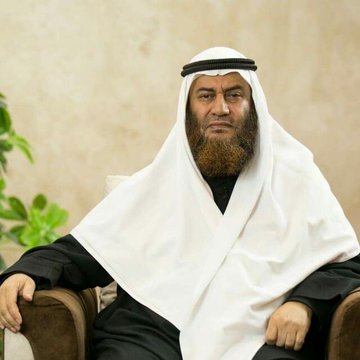|
Getting your Trinity Audio player ready...
|
Echoes of Restraint: Gaza’s Leading Scholar Condemns Hamas Attack, Calls for Protection of Innocent Lives in Rare Fatwa
The fatwa, a formal but non-binding Islamic legal opinion, is a powerful gesture, especially in a society where religious authority profoundly influences public opinion and behavior. In this case, Dr. Dayah’s six-page statement carries even more weight, as he highlights what he describes as Hamas’s “violations of Islamic principles governing jihad,” challenging the religious justifications often used by Hamas to support its actions
Edited by: Fern Sidman
In a development that has resonated deeply throughout Gaza and beyond, Professor Dr. Salman al-Dayah, one of the region’s leading Islamic scholars, recently issued a rare and potent fatwa condemning Hamas’s October 7th 2023 attack on Israel. This public condemnation comes as Gaza endures a devastating war that has impacted countless lives. Dr. Dayah’s critique of Hamas, attributed to a report at The BBC, marks a significant moment, given his respected position in the Gaza community as a former dean of the Faculty of Sharia and Law at the Hamas-affiliated Islamic University of Gaza.
The fatwa, a formal but non-binding Islamic legal opinion, is a powerful gesture, especially in a society where religious authority profoundly influences public opinion and behavior. In this case, Dr. Dayah’s six-page statement carries even more weight, as he highlights what he describes as Hamas’s “violations of Islamic principles governing jihad,” challenging the religious justifications often used by Hamas to support its actions. The BBC reported that Dr. Dayah’s fatwa goes beyond mere criticism, striking at the very foundation of the theological and moral rationale Hamas uses to rally support from within Gaza and among international Muslim communities.
🚨BREAKING: Prof. Dr. Salman Al-Daya, Dean of the College of Sharia and Law at the Islamic University of Gaza and Gaza’s foremost religious authority, has issued a series of six statements condemning Hamas leaders’ blatant disregard for Gazan lives—and has called on Hamas to step… pic.twitter.com/NIAF0OMVN5
— Ihab Hassan (@IhabHassane) November 7, 2024
According to The BBC report, jihad in Islam holds multiple interpretations. It can signify a personal, spiritual struggle or a military effort against perceived enemies of Islam. Dr. Dayah’s fatwa clarifies that specific Islamic principles govern such actions. He cautions that if the “pillars, causes, or conditions of jihad are not met,” it must be “avoided to prevent harm to the people.” This perspective implicitly rebukes Hamas’s October 7 assault, suggesting that its leaders failed to consider the impact on Palestinian lives and the overall humanitarian crisis that would inevitably follow.
For Hamas, whose claim to legitimacy and authority is partly rooted in its portrayal as a religiously inspired resistance movement, Dr. Dayah’s critique represents a substantial blow. In the wake of the October 7 incident, which saw thousands of Hamas fighters infiltrate southern Israel, resulting in the brutal murders of approximately 1,200 people and the taking of 251 hostages, Israel initiated a large-scale military response aimed at dismantling Hamas. The BBC coverage of Dr. Dayah’s fatwa underscores that the vast destruction of civilian infrastructure and mounting death tolls are in direct opposition to Islamic teachings on warfare and humanitarian principles.
The fatwa further points out that Hamas has not fulfilled its duties to protect and preserve the well-being of its citizens. Dr. Dayah specifically criticized the organization for failing to “keep fighters away from the homes of defenseless Palestinian civilians and their shelters” and for not providing necessary resources to secure basic needs across Gaza. Citing a lack of security in key areas such as health, education, and economic stability, he notes that these failures place civilians in harm’s way, creating insecurity that directly contradicts Islamic responsibilities. The BBC report highlighted Dr. Dayah’s argument that a responsible leadership would prioritize minimizing civilian harm by ensuring the separation of combatants from civilian areas and by safeguarding essential services.
🚨BREAKING: Prof. Dr. Salman Al-Daya, Dean of the College of Sharia and Law at the Islamic University of Gaza and Gaza’s foremost religious authority, has issued a series of six statements condemning Hamas leaders’ blatant disregard for Gazan lives—and has called on Hamas to step… pic.twitter.com/NIAF0OMVN5
— Ihab Hassan (@IhabHassane) November 7, 2024
In this powerful fatwa, Dr. Dayah calls attention to the ethical and religious obligations he believes Hamas has disregarded. By addressing the impact of Hamas’s actions on Gaza’s predominantly Sunni Muslim population, he frames the group’s conduct as contradictory to core Islamic teachings that stress the protection of innocent lives and the provision of essential resources. This rare rebuke from such a prominent religious authority in Gaza speaks volumes about the gravity of the crisis, drawing attention to a growing sentiment among some Islamic scholars that the humanitarian devastation resulting from Hamas’s actions cannot be reconciled with Islamic law.
The BBC report highlighted that Dr. Dayah’s theological position stems from his commitment to Salafist beliefs, which place him at odds with Hamas’s political structure and alliance with Shia-majority Iran. Unlike Hamas, which operates as a political party with strong ties to external actors, Dr. Dayah envisions a model of governance strictly grounded in Islamic principles. In past sermons, he has openly critiqued political factions, stating, “Our role model is the Prophet Muhammad, who founded a nation and did not establish political parties that divide the nation. Therefore, parties in Islam are forbidden.” This conviction places him in direct ideological opposition to Hamas, a stance that has distinguished him as a moderate Salafist scholar and a significant voice in Gaza’s religious landscape.
According to The BBC, Dr. Dayah has long maintained a firm stance against extremism, denouncing such terrorist groups as ISIS and al-Qaeda. He has used his platform over the years to address a range of social and political issues, issuing fatwas on everything from commercial ethics and family disputes to the conduct of political violence. This consistent commitment to moderation and adherence to Islamic principles has established him as a reliable and respected authority in Gaza. His latest fatwa is, according to Sheikh Ashraf Ahmed, one of his former students, “the most powerful legal judgment of a historical moment.” Ahmed, who had to flee Gaza City with his family due to the ongoing conflict, told The BBC that the fatwa was a deeply researched document that reflects Dr. Dayah’s dedication to Islamic jurisprudence.
This document has sparked broader discussions within Gaza and the Arab world about the morality and legality of Hamas’s actions, fueling ongoing debates about the use of violence in the Palestinian-Israeli conflict. The BBC report indicated that the fatwa’s impact is likely to deepen divisions within Palestinian society, with some segments supporting Dr. Dayah’s position and others remaining loyal to Hamas’s approach. Dr. Dayah himself remains in northern Gaza, having chosen not to flee despite the risks of air strikes. In doing so, he fulfills what he considers his religious duty: providing a legal opinion on issues of profound ethical and spiritual importance to the people of Gaza.





